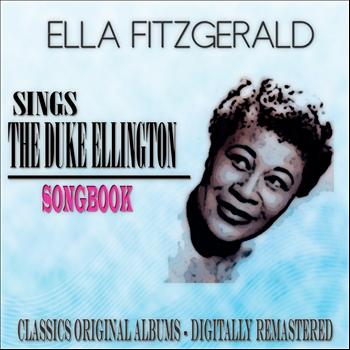

A victim of his own ubiquity, Riddle does little to differentiate his trademark punctuating horn charts and string-section swells from prior works, so everything sounds a little too familiar and too comfortable. Conductor Nelson Riddle, famous for his work on Sinatra’s heralded swing albums from the late fifties, files perfunctory arrangements for several of the songs here.

Originally released in 1963, the Kern installment came at the tail end of the original songbook series, and it feels as though enthusiasm for the project was beginning to flag. Some of his most famous songs - “Smoke Gets in Your Eyes”, “Ol’ Man River”, “They Didn’t Believe Me” - don’t make the cut for this songbook album, but even those with a casual familiarity with standards will recognize most of what does: “A Fine Romance”, “I’m Old Fashioned”, “All the Things You Are”, and perhaps Kern’s best song, “The Way You Look Tonight”, which epitomizes his writing style: a stately, indelible melody that patiently builds toward a soaring resolution. This approach would have especially pleased Jerome Kern himself, who had no love for jazz, which, anticipating Adorno, he called “the debasement of all music.” Kern, one of the early-twentieth-century architects of the Broadway musical form, is best known for composing Show Boat (with lyrics by Oscar Hammerstein II), after which he was enlisted by Hollywood to provide songs for such films as Swing Time and You Never Were Lovelier. Outside of the sublime Ellington albums, the typical approach she and Granz and her various orchestrators take adds no recondite jazz patina to trouble the core middlebrow audience that has always been the audience for show tunes. Venturing no controversial approaches and pursuing no speculative layers of complexity, Fitzgerald is always faithful to a neutral reading of the song for better of worse, her performances never upstage the composer. Effortless to the point of detachment, her singing was technically astute and unflaggingly mellifluous, and she was unburdened with the kind of ego that required her to stamp every tune she touched with a unique interpretation. In Fitzgerald, Granz had the ideal singer for such musical hagiography. This marketing coup assured that indigenous folk songs and styles would continue to be marginalized, while commercially manufactured music was enshrined as the noblest and purest expression of the American spirit. These songs, the work of professionals culled primarily from the often disposable medium of Broadway musicals, were on the cusp of becoming musty relics, nostalgia pieces if not forgotten altogether, until Granz’s intervention codified them into what is now modestly known as the “Great American Songbook”.
ELLA FITZGERALD SONGBOOK SERIES
Listed below are albums recorded by Ella Fitzgerald.In 1956, jazz impresario and Verve jefe Norman Granz recruited Ella Fitzgerald to document, through a series of composer-specific albums, the work of prominent American songwriters from the first half of the twentieth century. Among those recordings are works with some of history’s greatest musicians and the legendary Songbook series. During Ella’s 50-plus year career she recorded over 200 albums and around 2,000 songs.


 0 kommentar(er)
0 kommentar(er)
